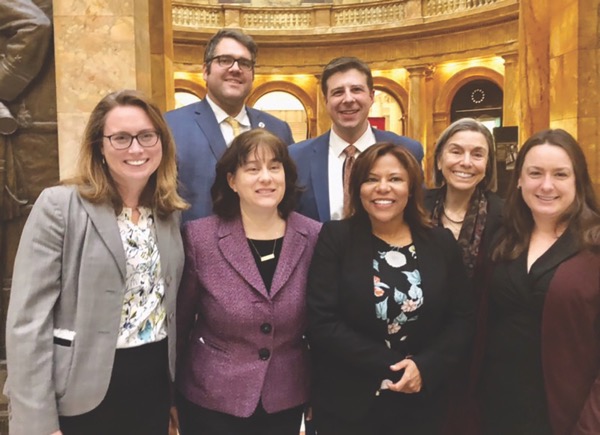BOSTON — A bill that would allow Massachusetts residents without legal immigration status to apply for drivers’ licenses is up for debate in the state house. An Act Relative to Work and Family Mobility (H.3012/S.2061) got a favorable review from the Joint Transportation Committee on Feb. 5.
The bill would strike down the current requirement that license applicants prove lawful residence. Instead, applicants could show a passport or a license from another state. Twelve states, including Vermont, Connecticut, and more conservative places whose economies depend on immigrant workers, including Utah and New Mexico, have already passed similar laws.
Advocates say the bill would provide two main benefits. First, it would improve road safety by increasing participation in drivers’ education courses and driving tests. Second, it would reduce the risk of deportation for current legal residents affected by Deferred Action for Childhood Arrivals (DACA) and Temporary Protected Status (TPS), should those programs be revoked by the federal government.

Natalicia Tracy is co-chair of the Driving Families Forward Coalition, a statewide advocacy group composed of more than 235 community groups and unions working to pass the bill. She told the Independent that going to court, where immigration officials can intervene, for a driving infraction is a “huge risk for people to get detained and deported.”
Immigration & Customs Enforcement (ICE) arrests have more than tripled since President Trump took office in 2017. Deportations often follow traffic violations, which, according to the Driving Families fact sheet, are the most common charges behind immigrant arrests.
Both state Rep. Sarah Peake and Sen. Julian Cyr have signed on to the bill, which will now go to the Senate Ways and Means Committee. If both the Senate and House approve it, the bill will go to Gov. Charlie Baker. He has expressed skepticism.
Cape Drivers Affected
Driving Families Forward hosted one workshop in Falmouth and another in Nantucket last month to explain the purpose of the bill.
Tracy said those who attended expressed concern that authorities would gain access to information about their residency status through the Registry of Motor Vehicles (RMV). The bill includes language to ensure immigration authorities and law enforcement cannot access RMV data in bulk. Looking up everyone with Hispanic-sounding names, for example, wouldn’t be allowed, Tracy said. Furthermore, the RMV would not disclose what documentation was presented in the application unless ordered to by a court. Under the bill, documentation must prove identity, date of birth, and residency in Massachusetts.
Tracy noted that the bill should make a difference to residents of Cape Cod, where public transportation is limited and where many jobs in construction and domestic work require travel.
But the Cape is different from Boston or Worcester, which are home to a higher percentage of immigrants, she added. “We’re working to educate elected officials living in more rural areas who don’t have a lot of contact with immigrants and don’t understand the reality of the communities,” Tracy said.
While the Mass. Major Cities Police Chiefs Association endorsed the bill in late January, saying that it builds trust between communities and police officers while making roads safer, the two local chiefs who responded to questions from the Independent had differing views.
Eastham Police Chief Edward Kulhawik wrote in an email that he is still undecided about the bill. “I do see the value of having all drivers documented on the road and the positives of all residents regardless of their immigration status registered with the state,” he wrote. But he asked, “Are we rewarding undocumented individuals who are not in our country legally a privilege they have not earned?”
Sarah Sherman-Stokes, associate director of the Immigrants’ Rights and Human Trafficking Program at Boston University School of Law, said, “I think that’s misguided. To allow people to have drivers’ licenses makes all of us safer.” Her U.S. citizenship, she pointed out, was not “earned” but was “a happenstance of birth.”
Although he thinks it’s not a prominent issue on the Outer Cape, Wellfleet Police Chief Mike Hurley supports the bill because it would improve road safety. What he would like to see people earn is better driving skills.
“If it helps people go through driver’s ed, I don’t see a negative impact,” he said.
Truro Chief Jamie Calise did not directly answer a question about his view of the bill. Provincetown Chief Jim Golden did not respond to repeated requests for comment.



